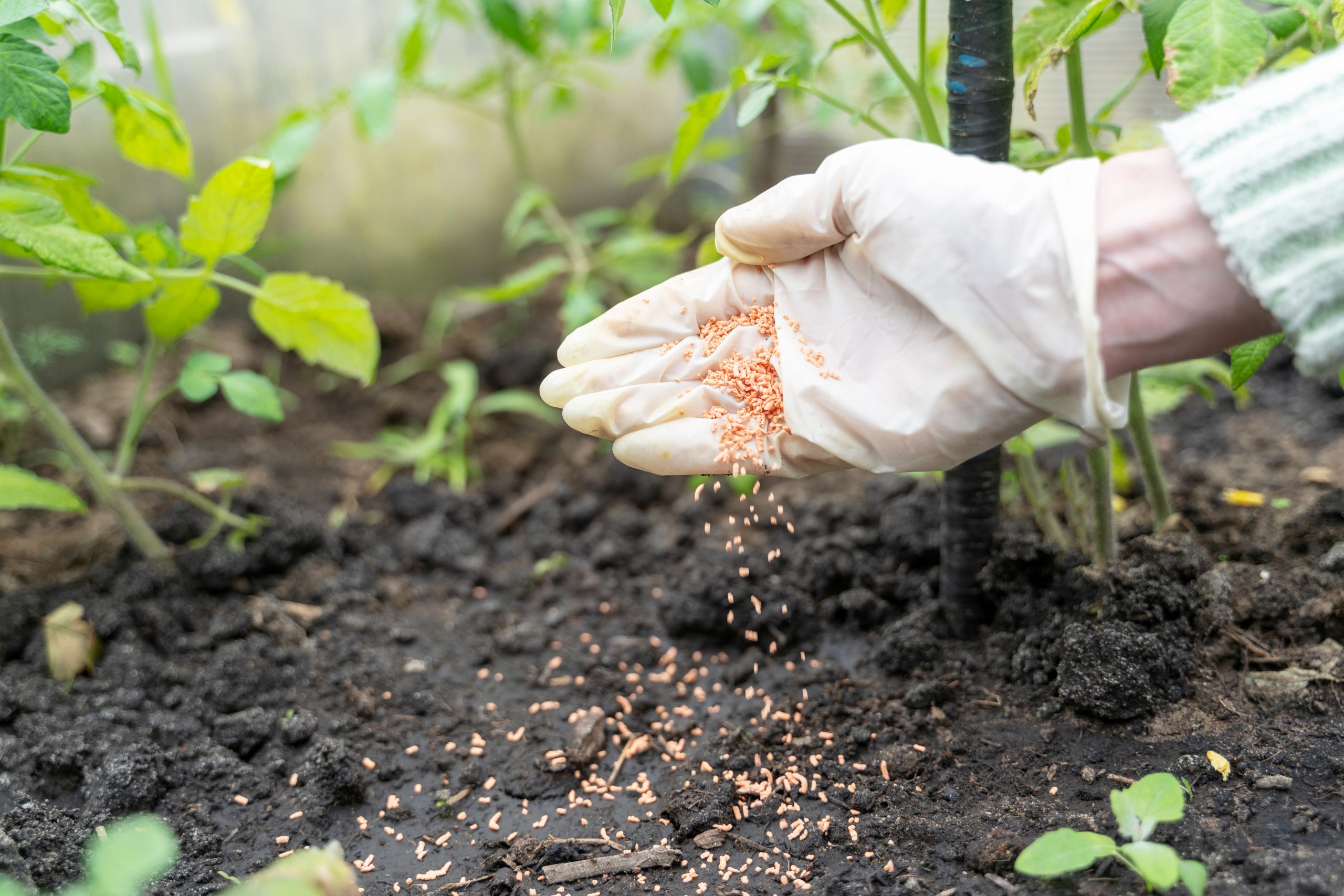Fertilizing your plants is one of the most important aspects of maintaining a healthy and thriving garden. While soil provides many essential nutrients, over time, it can become depleted, especially if you grow the same plants in the same space year after year. Fertilizers help replenish the soil, ensuring your plants receive the nutrients they need to grow strong and produce flowers, fruits, or vegetables. Here’s why fertilizing your plants is essential and how to do it effectively to maximize your garden’s health and yield.
1. Replenishing Soil Nutrients
Over time, plants draw nutrients from the soil, and if they’re not replaced, the soil becomes less fertile. Key nutrients like nitrogen (N), phosphorus (P), and potassium (K)—often referred to as NPK—are vital for plant growth and development. Nitrogen promotes leafy growth, phosphorus supports root and flower development, and potassium helps with overall plant health and disease resistance.
As plants absorb these nutrients, the soil can no longer provide the optimal conditions needed for growth. Fertilizers are designed to replenish these essential nutrients, allowing plants to continue thriving in the same soil year after year.
Tip: Always test your soil to determine which nutrients are lacking before applying fertilizer. This ensures you provide the right balance of nutrients.
2. Encouraging Healthy Plant Growth
Fertilizing your plants encourages healthy growth by providing them with the nutrients necessary for development. Different stages of plant growth require different nutrients:
- Seedlings and young plants need nitrogen to fuel their initial leafy growth.
- Flowering and fruiting plants benefit from phosphorus to support the development of flowers and fruits.
- Potassium is crucial for plants at all stages, but especially during fruit production, as it helps improve the quality and quantity of your yield.
By using the right fertilizer at the right time, you can encourage your plants to reach their full potential.
Tip: Use a slow-release fertilizer early in the growing season to provide a steady supply of nutrients throughout the year. This reduces the need for frequent applications.
3. Preventing Nutrient Deficiencies
Nutrient deficiencies can cause a range of issues for your plants, from yellowing leaves (a sign of nitrogen deficiency) to poor fruit development (often caused by a lack of phosphorus). Regular fertilization helps prevent these deficiencies, ensuring your plants stay healthy and productive.
If you notice symptoms like stunted growth, pale or discolored leaves, or weak stems, it may be a sign that your plants are lacking certain nutrients. Applying the appropriate fertilizer can often reverse these problems and restore plant health.
Tip: Watch for specific signs of nutrient deficiency to catch problems early and adjust your fertilization routine accordingly.
4. Boosting Yield and Productivity
For gardeners growing vegetables or fruits, fertilization plays a critical role in boosting yield. Plants that receive the right nutrients will not only produce more but will also produce higher-quality fruits and vegetables. This is especially important for crops like tomatoes, peppers, and squash, where nutrient-rich soil helps plants develop large, flavorful fruits.
Organic fertilizers like compost or manure are excellent choices for increasing soil fertility naturally. These organic options also improve soil structure, helping with water retention and promoting healthy root growth.
Tip: When growing fruits and vegetables, use fertilizers designed specifically for edible plants to ensure you’re providing the right nutrients for high yields.
5. Improving Soil Structure
Certain types of fertilizers, particularly organic fertilizers, can improve the overall structure of the soil. For example, compost adds organic matter to the soil, which enhances its ability to retain moisture and nutrients. Good soil structure promotes better root growth and increases the soil’s resilience to erosion and compaction.
Healthy soil also fosters beneficial microbial activity, which helps break down organic matter and makes nutrients more readily available to plants. This creates a thriving ecosystem that supports both your plants and the surrounding environment.
Tip: Incorporate compost or organic fertilizer into your garden at least once a year to keep the soil rich and healthy.
